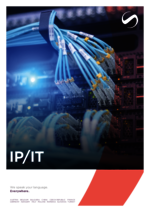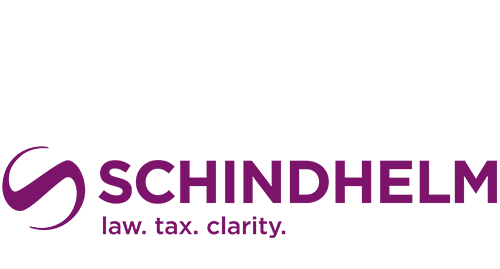IP / IT Law
The field of Intellectual Property includes both, technical property rights, such as patents, and non-technical property rights, such as trademarks, designs, and copyrights. Intellectual property rights secure the economic investment in an intellectual invention. Typically, IP lawyers are also active in laws against unfair competition for this reason. At SCHINDHELM, this know-how is bundled into the practice group IP / IT.
IT law relates to legal issues regarding information technology and counts as a cross-sectional area. For that reason, it includes relevant subdivisions of all main legal areas such as contract law, data protection, and IP law.
With the right strategy and in-depth legal advice from SCHINDHELM, you will ensure your company’s success in these legal areas. This is essential because innovations are a key driver of growth and thus must be sustainably used and protected. This is how you can effectively take action against counterfeit products and plagiarism that cause significant economic damage worldwide. Privacy and data security are now an essential element of business activities and can pose a significant liability risk without sound legal advice.
Our IP and IT Services
- Contract design: negotiation, review, and develpoment of legally certain software development and license agreements, data license agreements, data pooling, or holistic and project-related data-protection concepts.
- Advice and legal support when introducing new software solutions.
- Advice on the management of digital risks in financial markets (Digital Operational Resilience Act, DORA) for financial companies and ICT providers such as cloud service providers.
- Advice and support for online sales systems (online shop) and reseller structures.
- Advice on and development of brand strategies.
- Advice on the registration and defence of your property rights. This is how to secure your company’s growth and investment in R&D.
- Enforcement of rights under civil law with preliminary injunctions and litigation.
- Cooperation with law enforcement agencies and customs effectively to combat violations of the law.
- Advice and representation for claims made against you by third parties (for example, cease and desist, opposition to your trademark application).
- Advice on all questions about the internet, domains, e-commerce and data protection, digitalisation, and resilience.
Consultancy Needs in IP & IT Law
Nowadays, protecting and defending intellectual property is fundamental to corporate risk management. The right legal action protects your company’s valuable assets by safeguarding innovation, brand names, and creative works and by preventing unlawful use by competitors. At the same time, IT legal advice is essential to fulfil privacy regulations, to design IT contracts in a legally certain way, and to protect against cyberattacks, which ensures the company’s comprehensive legal protection and long-term stability.
IP and IT legal advice are important in the following situations:
- As part of compliance with new laws and regulations (DORA, Data Act).
- For an intended corporate transaction.
- To protect your intellectual property such as ideas, trademarks, patents, and software.
- When creating or intending to enter into contracts and licensing, and when advising and negotiating agreements and transfers of technology and/or of data.
- When developing and evaluating data-protection concepts and managing data risks or a data breach.
- For legal disputes or violations of your rights by other competitors.
Our IP & IT Expertise
We strive to work closely with you and your management team to understand your business and products and to best represent your interests. Our focus in IP and IT law is especially on the following areas:

Copyrights cannot be transferred, but rights of use to a work can be granted by means of a license. License agreements allow the licensee to use the work on certain conditions; cooperation agreements often involve joint projects in which the rights of use must be clearly defined and distributed.

License agreements must detail the rights and obligations of all parties, including licenses of use, maintenance, support, and liability issues. Misunderstandings must be avoided and content must be formulated accurately to avoid legal and financial consequences.

A well-written agreement for the creation and delivery of software is relevant to circumvent legal disputes and misunderstandings about the process.

In IT, companies often share and transfer technical knowledge. Know-how contracts ensure the protection of trade secrets and intellectual property of all parties involved; a legally valid contract design minimises the risk of disputes and unauthorised use.

Virtually all regulated institutions and companies in the European financial sector fall under DORA. Additionally, DORA unites various requirements on institutions and companies in terms of cybersecurity, ICT risks, and digital operational resilience.

Authors and inventors have exclusive property rights to recognise their creative achievements and provide economic benefits to owners. For that reason, these ownership rights in intangible assets must be protected by registration to protect them from unauthorised use.

Trademarks identify a product or service (logos, names, slogan) and confer on the owner the exclusive right to use the trademark in business. Companies must register their trademarks to protect them; additionally, trademark law contains civil and criminal rules that owners can assert for trademark infringements.

Media law creates a legal framework that includes the production and distribution of content (radio broadcasting, press, film, digital media). The essential components are the protection of personal data and the safeguarding of personality rights that companies must take into account. Violations may result in lawsuits and damages.

Copyright grants the copyright holder the sole right to distribute and reproduce a work. In the case of copyright infringement, legal advice is needed to claim damages. Consultation is also meaningful when purchasing licenses.

With a patent, an owner legally ensures that the protected invention cannot be produced, used, or sold without permission. A patent application must be detailed and precise to ensure full protection and it also requires extensive patent research.

Utility Models can be a cost-effective alternative to patent protection.

This right refers to the external appearance of products (shape, colour, contour, surface texture, etc.). Owners have the exclusive right to use it and to prohibit third parties from using it.

A preliminary injunction can ensure that the distribution of infringing products ceases. This effectively protects rights holders and prevents further damage – and is especially important in trade fair cities where piracy and unfair competition practices are common.

Proper domain registration is critical to avoid litigation. Domain law ensures that domain names do not infringe trademark rights and are not used for unfair competition.

Companies must ensure that their online business model and practices comply with legal requirements. E-commerce law offers the basis for this and it regulates aspects such as contracting, consumer protection, data protection, and electronic payments.

Protecting personal data from abuse and unauthorised use is a legal requirement for companies. In Germany, data protection is subject to the Federal Data Protection Act (BDSG) as well as the Europe-wide EU General Data Protection Regulation (GDPR).

With a Data Protection Impact Assessment, companies assess the risks that data processing entails for the rights and freedoms of individuals. The effects of planned data processing in terms of data protection must be evaluated and appropriate remedial measures must be taken.

These agreements define how and in which geographic or material areas the respective rights may be used. This helps companies avoid conflicts with other brands or businesses.

Companies business practices have to comply with legal requirements. Competition law thus includes regulations against unfair competition, about industrial property rights, and regulations to prevent the establishment of of cartels. Competition law is also an essential standard in contract design, for instance, in the area of establishing distribution systems.
References and Success Stories
We stand by our clients’ side with expertise and commitment in IP and IT law. The following are some of our most recent successful clients.
SCHINDHELM manages the worldwide trademark portfolio of companies such as ASSMANN BÜROMÖBEL GmbH & Co. KG, Bohnenkamp SE, Dr. Loges + Co. GmbH, GRIMME Landmaschinenfabrik GmbH & Co. KG, Hellmann Worldwide Logistics SE & Co. KG, NOZ Medien Gruppe (Neue Osnabrücker Zeitung, etc.) or wedi GmbH and is continuously involved in strategic IP counseling.
SCHINDHELM represents German and foreign companies, such as the motorcycle manufacturer KTM AG or the Spanish soccer club Atlético Madrid, in trademark opposition proceedings before the German Patent and Trademark Office.
SCHINDHELM represents a leading agricultural machinery manufacturer from the USA in the enforcement of claims based on laws against unfair competition by way of preliminary injunctions.
SCHINDHELM drafts and negotiates software development, maintenance and SaaS agreements for the reorganization of the online presence of a machine manufacturer.
SCHIHELMND advises a system integrator and managed service provider on the sale of a platform to a logistics company.
Contact and Consultation
SCHINDHELM’s IP/IT team provides you with the full range of IP and IT legal consulting to keep your innovations safe. With our offices law firms in Düsseldorf, Frankfurt, Hamburg, Hannover und Osnabrück, we protect your rights and technologies, safeguard the use, and defend them in court.



